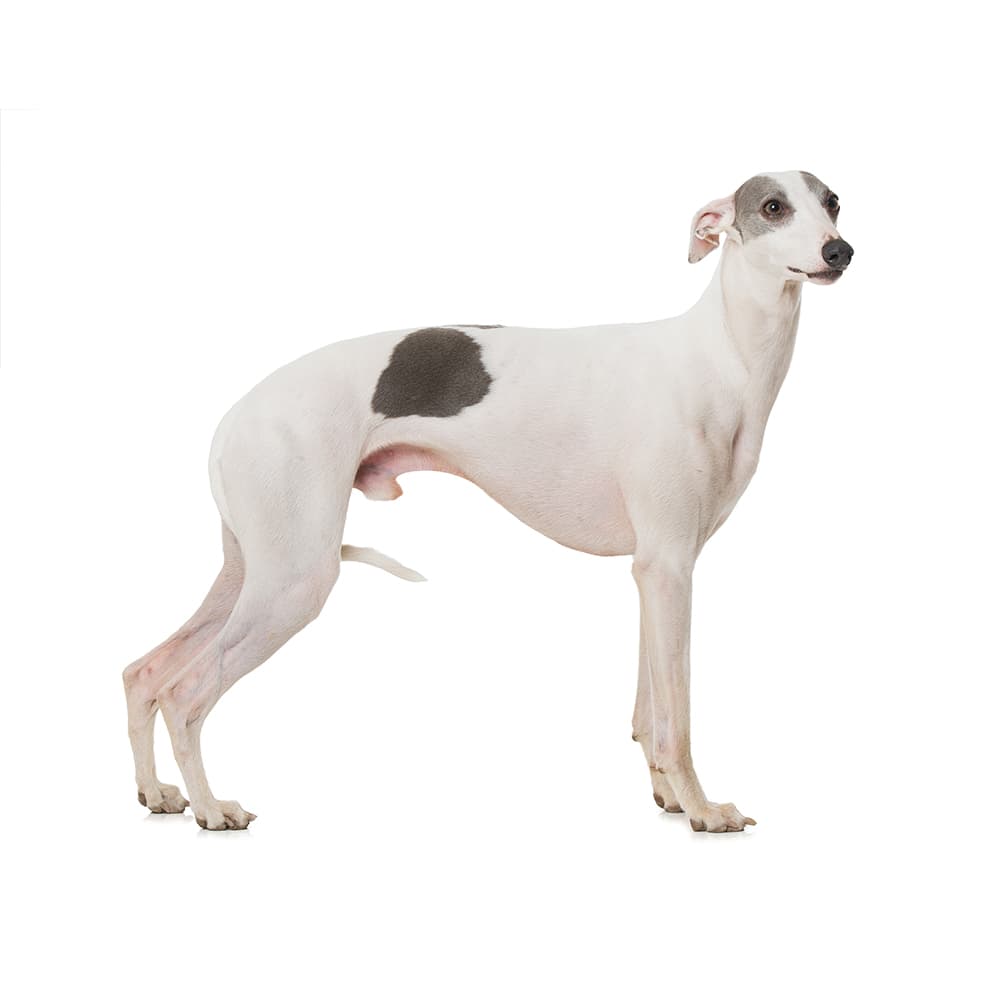Discover your dog's connection to this breed and 200+ others


Discover your dog's connection to this breed and 200+ others



Whippets, often referred to as "the poor man's racehorse," originated in England during the 18th and 19th centuries. They were developed by crossing small Greyhounds with various terriers for their speed and tenacity. They were primarily used by working-class people for racing and rabbit hunting due to their high speed and keen sight. Contrary to your statement, the Whippet is not also known as the Italian Pointer; the Italian Greyhound is a separate breed entirely and is smaller than the Whippet.
Whippets have thin and slight frames, so weight management is important since the breed is prone to orthopedic issues. They are sensitive to barbiturate anesthesia, can suffer from eye defects, deafness, and skin lacerations. Genetic testing for degenerative myelopathy, glycogen storage disease VII, Phosphofructokinase (PFK) deficiency, and myostatin deficiency can assist veterinarians with diagnosis and proactive care, as well as help breeders identify affected and carrier dogs.
Whippets are known for their affectionate and calm nature. They are generally good with children and other dogs. They are quiet and docile in the home but love to chase and can be very fast when they get moving. This breed is intelligent and trainable but can be independent and stubborn at times. Whippets are sensitive dogs and respond best to positive reinforcement training methods.
A canine genetic lineage is a group of individuals or entire breeds that descended from common ancestors predating modern breed formation. Often these lineages are associated with a ‘type’ of dog with a unique historical working role and associated behaviors (e.g., herding, scent hunting, etc.).
Sighthound breeds date back thousands of years, they were bred for speed and agility. The physical characteristics of sighthounds include long lean bodies with a deep chest and long legs and allow them to run fast over short distances. Sighthounds are excellent hunters for fast-moving prey while using their sight rather than scent to find and follow their prey. They tend to be independent, but also gentle and affectionate with their families.
Example breeds with ancestry from this lineage include Greyhound, Irish Wolfhound, and Whippet.
Whippets are incredibly fast and can reach speeds of up to 35 miles per hour, making them one of the fastest dog breeds.
Despite their racing background, Whippets are often referred to as "the ultimate couch potato" because they love to snuggle and sleep in comfortable places when they're not running around.
A Whippet named "Ashley Whippet" was the first disc dog and was a three-time winner of the Canine Frisbee Disc World Championship in the 1970s.
https://www.akc.org/dog-breeds/whippet/
https://www.ukcdogs.com/Whippet
https://www.fci.be/en/nomenclature/WHIPPET-162.html
https://www.petmd.com/dog/breeds/c_dg_whippet
https://www.pawprintgenetics.com/products/breeds/71/
Recommended by top vets with decades of experience
21 breeds
64 genetic health markers
50 genetic trait markers
